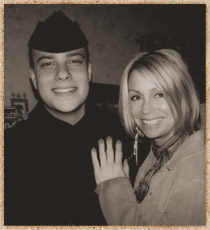Heratbreaking Reality from a Veteran
Posted by Jennifer on December 6, 2021
Coming Home from Vietnam
It took only a few days at home for me to realize that my descriptions of Vietnam, events and experiences I had, actually frightened our families, embarrassed our friends, and sometimes provoked hostility from those we thought were our friends before we went to war. My best friends from high school turned on me calling me a “baby killer,” and not caring to hear anything I had to say about the war. I was ostracized.
My generation of warriors who were “protecting America” were spit on and called “baby killers” and “war mongers” along with the term “murderers.” Some hippies burned the American flag in protest to the war. The hippies often taunted the soldiers and blamed us for the war by saying if it wasn’t for us fighting, the war could have been avoided. We had no voice or platform from which to respond, we were judged without benefit of any support from society, any support from our own military/government, or any support from our friends and family. The proud world we left had turned into the largest anti-war machine in US history, and my fellow solders and I had to pay the price with our silence and living within ourselves.
It became apparent that my return into the society I had left required me to remain silent and hide the fact of my involvement in not only the Vietnam War, but also any association with the US Army. The total disregard of my experiences was the cost of my re-entry into America.
Coming home, I spent the better part of two years trying to “get my shit together.” It was not an easy road to recovery because neither the Army nor the US government would recognize “combat fatigue” or what is now known as PTSD. We received absolutely no support whatsoever; in fact our government and our constituents to whom we returned ridiculed us and blamed us for things which we had no control over. My recovery period immediately upon my return from Vietnam consisted of almost daily doses of LSD, marijuana and the lifestyle of the “hippie.” Here I could bury my feelings and myself into self absorbed, individualized and distant emotions, a lifestyle that did not require me to make close friends nor participate in large group activities.
After two years of this kind of behavior (1968 – 1970), which I thought at the time was my “recovery period” from the war experience, I cut my hair and beard, returned to society with all the expectations of success, but discovered I could not come home entirely. I still hid the fact that I had been in the war, afraid that I would be ostracized and called yet again a “baby killer.” I returned to Tucson Arizona to live with my parents while I attended flight-training classes at the local airport. Though I excelled at the flight training, I did so at the expense of making friendships. I supported myself by fueling airplanes at the local airport, conducting flying lessons for a flight school, and working as a surveyor’s assistant. The results were less than ideal; I could not excel at any of those endeavors because of my frequent and intense anger outbursts, depression moods, and general uncooperative attitude towards my superiors whom I did not consider “superior” at all. These traits have followed me in my life for the past 40 years. The years in Tucson I describe only portend the future of my entire life, as I was to discover over and over and over again.





 Site by
Site by
Leave a Reply